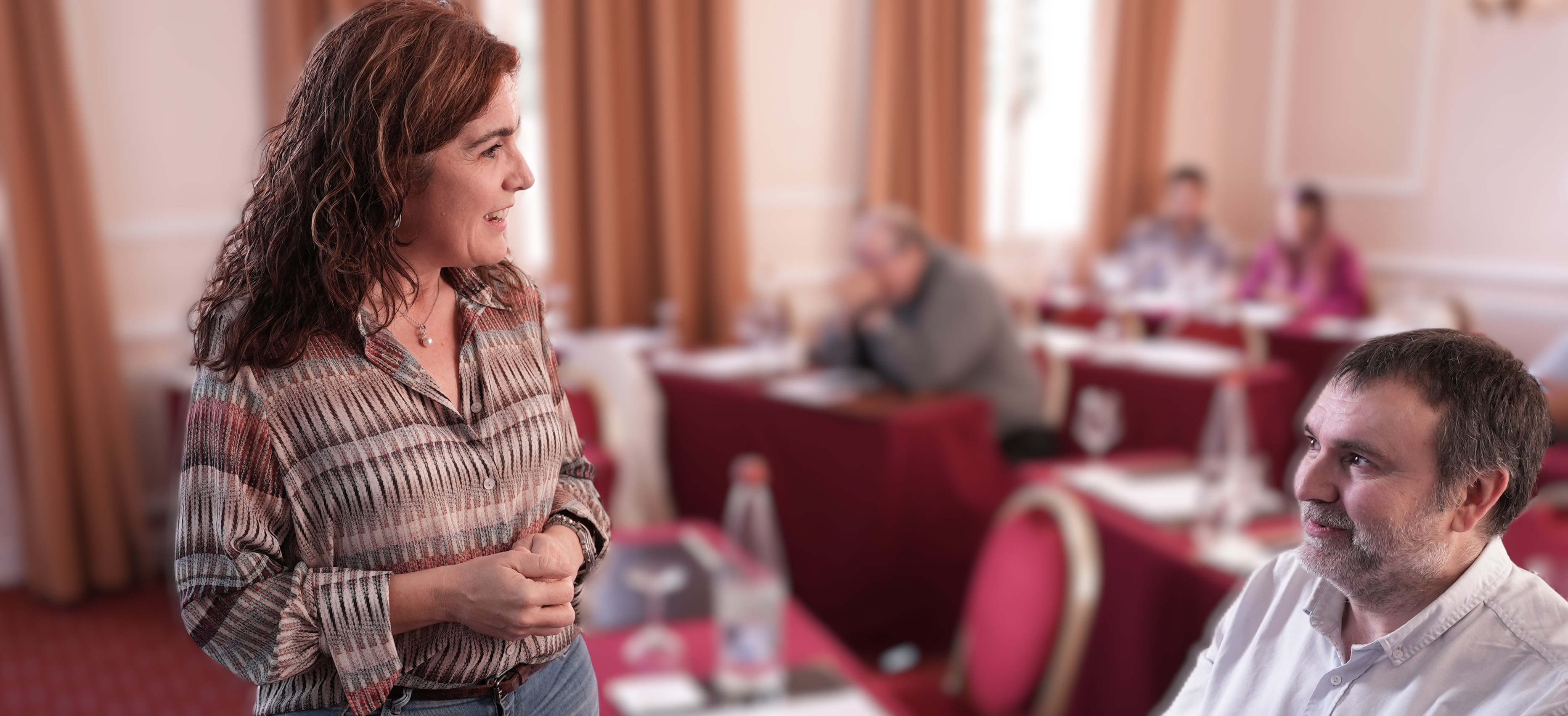
Effective Business Models: Key Insights from Claudia Maia for the medium
On November 7 and 8, two intense days of conferences were held in Nice, as part of the European IQ Media project. Dedicated to innovation in the media, these days brought together renowned professionals from all over Europe to debate and exchange views on the current and future challenges facing the media industry. Among them, Claudia Maia led the workshop : “Effective Business models”.
Read the summary here.
See our videos to learn more about those two amazing days, just here.
Claudia Maia, Director of Apimprensa in Portugal, shared practical insights on sustainable business models for media organizations facing modern challenges. Drawing from examples in Portugal, Maia highlighted strategies for balancing community engagement with revenue generation. Here are five takeaways from her workshop.
5 Key Takeaways
- Leverage Local Presence for Engagement 🏠
“Proximity is key to retaining loyal members,” Maia emphasized. She cited Gazeta das Caldas, a local Portuguese newspaper with a physical store where subscribers can pick up their papers and chat with staff. “Many of our readers are elderly and enjoy this personal connection,” she noted. The store also sells local art and books, fostering a sense of community. - Host Events to Diversify Revenue 🎉 Região de Leiria, a regional newspaper, generates 40% of its budget from events like conferences and galas. “These events provide critical support for journalism,” Maia explained, showcasing how non-traditional revenue streams can keep media organizations afloat while engaging the community.
- Digital Archives to Enhance Brand Value 📚
For media with rich histories, Maia stressed the value of digitizing archives. “These archives contain entire regional histories,” she said. Accessible archives are valuable for students, teachers, and researchers. “It’s a way to show a brand’s relevance—not just now, but in preserving local memory,” Maia added. - Balance Print and Digital Offerings 📰💻
In Portugal, “people aren’t always willing to pay for online content,” Maia shared. Print newspapers still fund much of their operations. Maia urged finding a balance: “Keeping print alive supports the shift to digital.” This approach helps outlets adapt digitally while retaining a foundation in print. - Credibility as a Cornerstone 🤝
“Credibility underpins everything,” Maia said, emphasizing that trusted brands gain strong audience support. Her work with DECO Pro Teste, a respected Portuguese consumer organization, serves as an example: “When people trust your brand, they’re more willing to pay and support your projects.” Credibility helps media companies build a loyal base willing to invest in quality journalism.
Why This Matters?
In an increasingly digital landscape, Maia’s insights are highly relevant. Her focus on local engagement, alternative revenue, and brand credibility offers a roadmap for sustainable growth. As audiences seek authentic local connections, these lessons show how innovative models can make a media thrive.
Claudia Maia is the Director of Apimprensa, the Portuguese Press Publishers Association, and serves as Editorial Director at DECO Pro Teste, Portugal’s leading consumer rights organization.
CLEMENT GUILLONNEAU (In partnership with IUT de Cannes, school of journalism)

